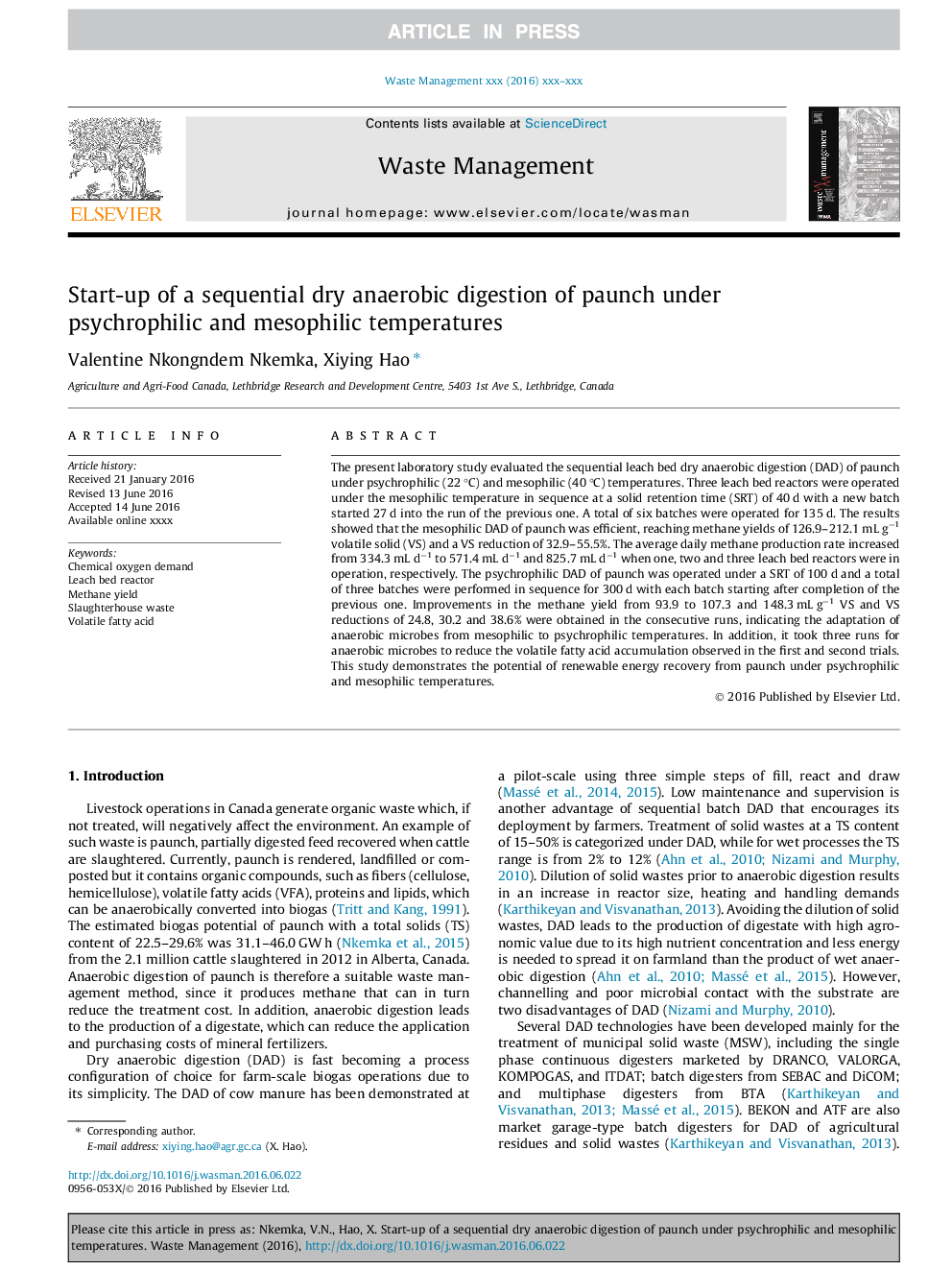| Article ID | Journal | Published Year | Pages | File Type |
|---|---|---|---|---|
| 8869962 | Waste Management | 2018 | 6 Pages |
Abstract
The present laboratory study evaluated the sequential leach bed dry anaerobic digestion (DAD) of paunch under psychrophilic (22 °C) and mesophilic (40 °C) temperatures. Three leach bed reactors were operated under the mesophilic temperature in sequence at a solid retention time (SRT) of 40 d with a new batch started 27 d into the run of the previous one. A total of six batches were operated for 135 d. The results showed that the mesophilic DAD of paunch was efficient, reaching methane yields of 126.9-212.1 mL gâ1 volatile solid (VS) and a VS reduction of 32.9-55.5%. The average daily methane production rate increased from 334.3 mL dâ1 to 571.4 mL dâ1 and 825.7 mL dâ1 when one, two and three leach bed reactors were in operation, respectively. The psychrophilic DAD of paunch was operated under a SRT of 100 d and a total of three batches were performed in sequence for 300 d with each batch starting after completion of the previous one. Improvements in the methane yield from 93.9 to 107.3 and 148.3 mL gâ1 VS and VS reductions of 24.8, 30.2 and 38.6% were obtained in the consecutive runs, indicating the adaptation of anaerobic microbes from mesophilic to psychrophilic temperatures. In addition, it took three runs for anaerobic microbes to reduce the volatile fatty acid accumulation observed in the first and second trials. This study demonstrates the potential of renewable energy recovery from paunch under psychrophilic and mesophilic temperatures.
Keywords
Related Topics
Physical Sciences and Engineering
Earth and Planetary Sciences
Geotechnical Engineering and Engineering Geology
Authors
Valentine Nkongndem Nkemka, Xiying Hao,
